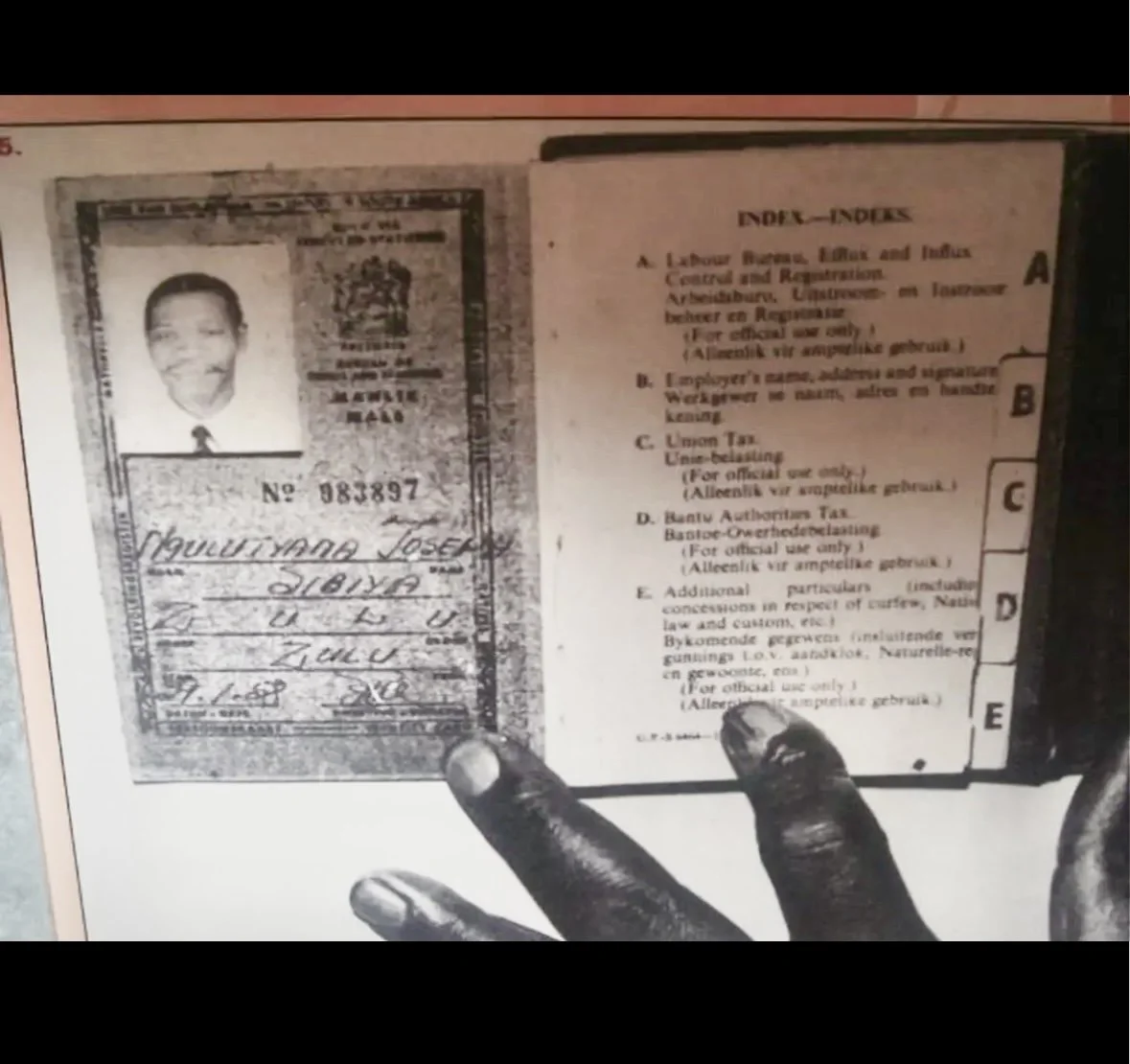We Know How This Ends: Learning from South Africa's Story
Apartheid ID booklet: District Six Museum, Cape Town, ZA
“I am because we are.”
Whole with Joy has been shaped by many philosophies and indigenous principles of healing, transformation, and justice all grounded in my lived experience.
In 2008, I was blessed to travel to South Africa, where I witnessed both the extraordinary resilience of Black South Africans and the devastating disparities left behind by centuries of Dutch colonial rule and apartheid. What struck me most wasn't just the ongoing struggle, but one of the most foundational teachings I encountered there: Ubuntu — a Zulu philosophy meaning "I am because we are." Ubuntu teaches that when one part of the whole is unwell, the whole suffers. It reminds us that we are reflections of one another, that separation is an illusion, and that belonging and harmony are essential to life.
During my conversations with Black South Africans, I experienced moments of deep solidarity rooted in our shared histories of slavery, apartheid, and oppression. We talked about our hopes for our personal lives, our communities, and the world. Now, seventeen years later, I find myself asking: how much has truly changed?
The Pattern Repeats
Today, we continue grappling with fascism, genocide, authoritarianism, state-sanctioned violence, climate change, land theft, and engineered social polarization. Disturbingly, we're witnessing tactics that mirror South African apartheid: state-controlled media, banned political organizing, jailed dissidents, censored art and thought, and violent suppression of resistance.
This is why we must learn from other countries' histories to understand what happens when racism becomes law.
Apartheid by the Numbers: The Cost of Institutionalized Racism
The statistics from South Africa's apartheid regime (1948-1994) reveal the systematic human cost of legalized racial oppression:
The Death Toll
21,000+ killed in political violence
15-year life expectancy gap (whites: 70, blacks: 55)
7x higher infant mortality for black babies
The Displacement
3.5 million people forcibly removed from homes
72% of population crammed into 13% of land
The Economic Destruction
100:1 wealth gap at its peak
20:1 wage gaps for identical jobs
86% of land owned by the 13% white minority
The Educational Sabotage
15:1 funding gap (whites got 15x more per student)
68% of black adults had zero formal education by 1994
The Healthcare Apartheid
275:1 doctor gap (1 doctor per 330 whites vs 1 per 91,000 blacks)
23x higher TB rates among non-whites
Why Americans Must Pay Attention
These numbers aren't just historical artifacts — they're a mirror reflecting our present reality:
13:1 wealth gap still exists between white and black families in the US
Similar patterns persist in education funding, healthcare access, and mass incarceration
This is what happens when inequality becomes institutionalized
The Truth and Reconciliation Commission's documentation reveals how institutionalized racism devastates human lives on a massive scale. These statistics demonstrate how quickly legal discrimination compounds into systematic oppression, how seemingly neutral policies perpetuate racial hierarchy, and how structural violence claims more lives than direct violence while remaining largely invisible.
Ubuntu: A Path Forward
But South Africa also offers us something else: a blueprint for transformation. Ubuntu philosophy played a crucial role in helping Black South Africans resist apartheid and continues to guide their Truth and Reconciliation process, a healing journey still unfolding today.
Ubuntu wasn't just philosophy, it became practical policy. The Truth and Reconciliation Commission embedded Ubuntu directly into South Africa's founding legislation, stating: "there is a need for understanding but not for vengeance, a need for reparation but not for retaliation, a need for ubuntu but not for victimization." When Amy Biehl's killers sought amnesty, her parents invoked Ubuntu principles, later employing two of the men in their foundation demonstrating "I am because we are" through restorative action rather than retribution.
It's important to acknowledge that Ubuntu isn't a magic solution. South Africa continues to face significant inequality challenges, the wealth gap remains among the world's highest, and many apartheid-era disparities persist. Ubuntu offers a framework for the long, difficult, essential work of healing both personal and collective.
Most powerfully, Ubuntu emphasizes personal responsibility. It reminds us that we are the leaders we seek. The capacity to transform our current circumstances into greater harmony and health relies on our actions and choices.
The Mirror We Hold
Standing in the District Six Museum in Cape Town, visiting the Iziko Slave Lodge Museum, seeing the cell where Nelson Mandela was imprisoned these experiences showed me that our struggles are connected across continents and centuries. The same systems of oppression that devastated South Africa continue to harm communities worldwide.
But Ubuntu teaches us that we are not separate. Your liberation and mine are bound together. When we truly understand this interconnectedness, we recognize that healing one part of the whole begins to heal everything.
Our Greater Responsibility
As we face rising authoritarianism, climate crisis, and social polarization, Ubuntu offers a revolutionary framework: we can choose connection over separation, healing over harm, transformation over despair.
The statistics from apartheid serve as both warning and guidance. They show us the devastating cost of institutionalized racism and they remind us that systems built by humans can be transformed by humans.
We are the circle. We are the healing. We are the change.
I am because we are.
Join the Circle of Transformation
This principle shaped me and my work. Whole with Joy is built on the belief that ancient wisdom traditions like Ubuntu offer guidance for how we relate, govern, and care for one another today — how we create a more just, whole, and prosperous world.
If this message resonates with you, I invite you to become part of a community committed to healing and transformation. At Whole with Joy, we gather changemakers who understand that personal healing and collective liberation are inseparable that our individual transformation ripples out to heal the world.
Ready to step into your power as a changemaker by investing in your healing & liberation?

